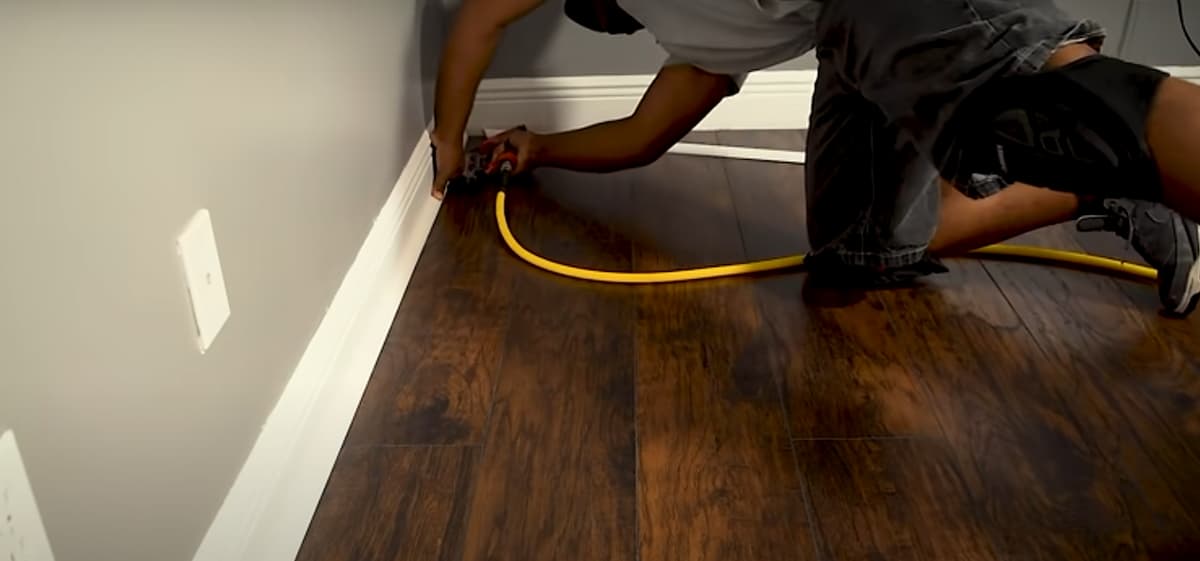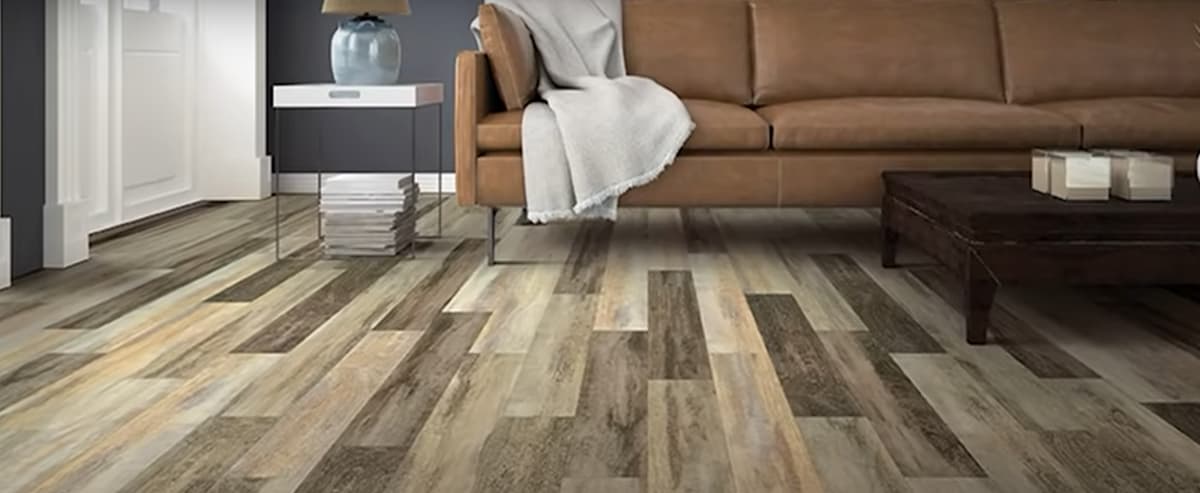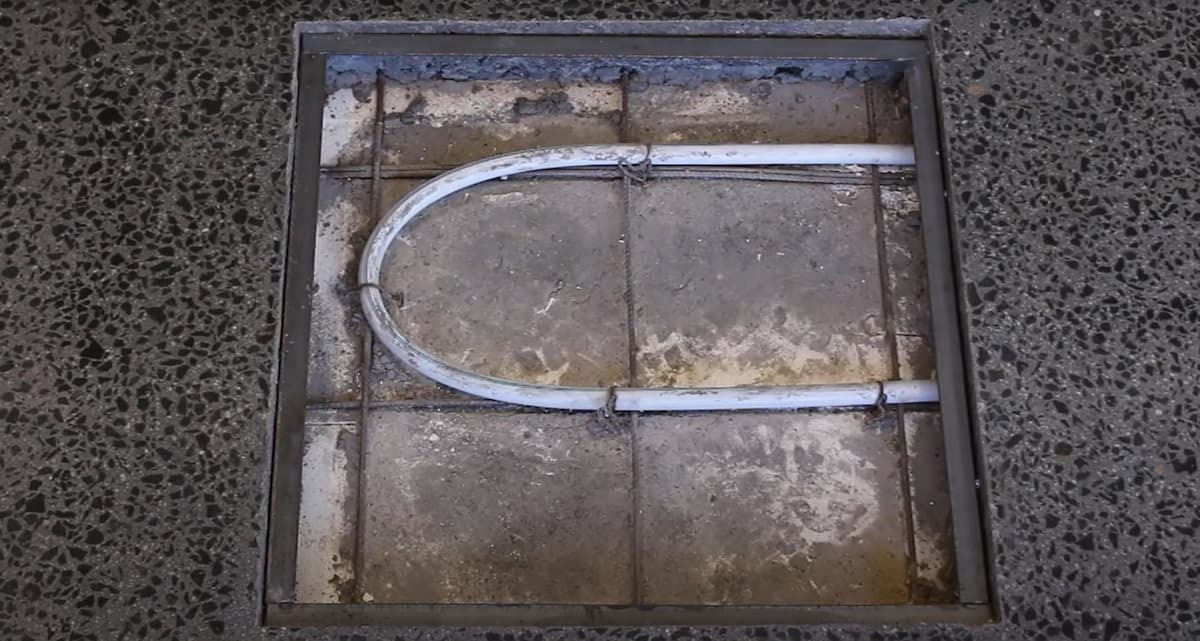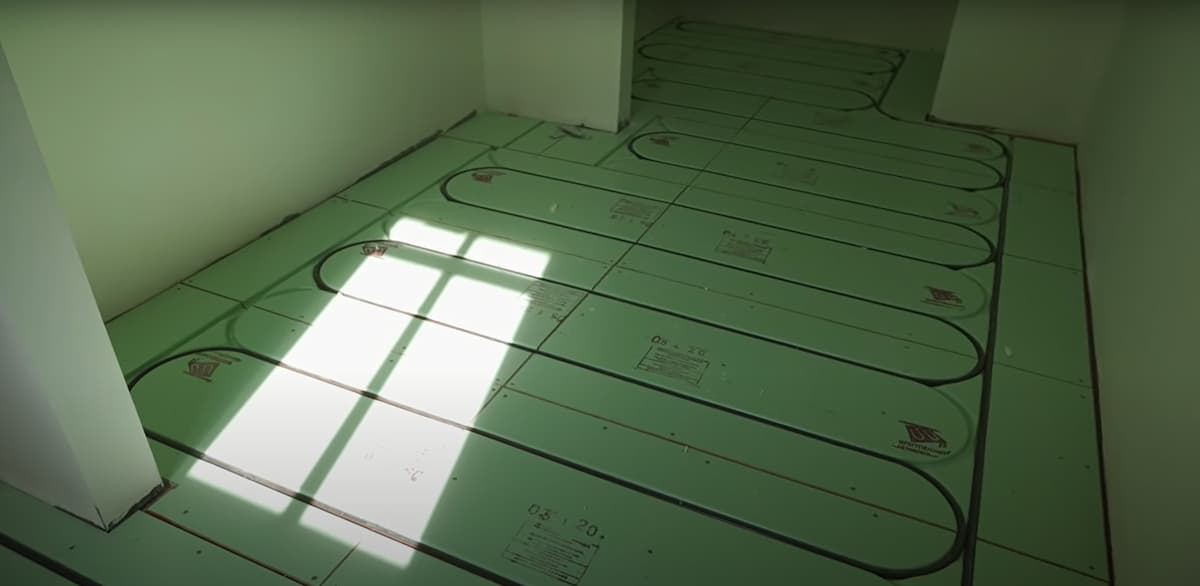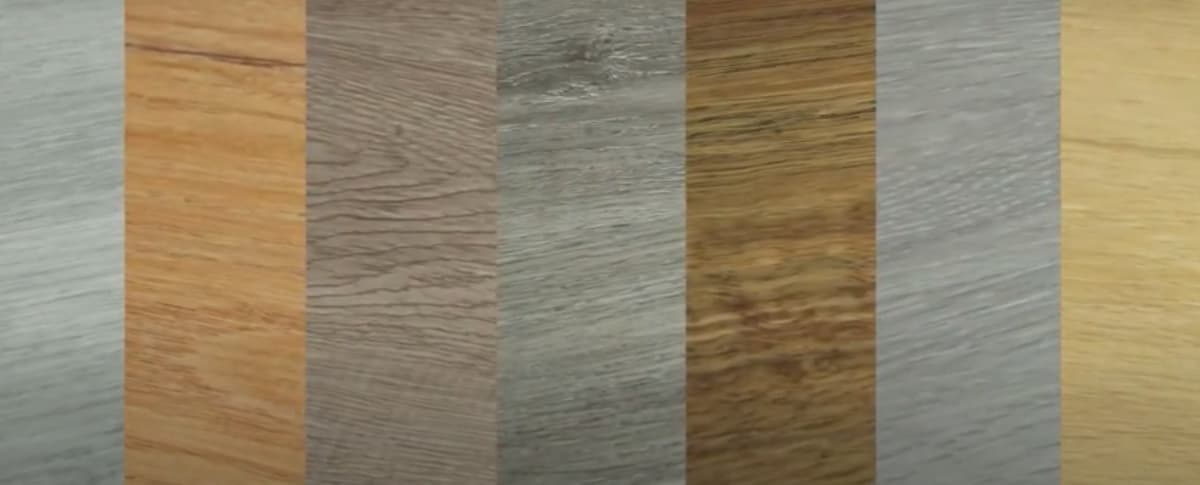
We’ll start by looking at the definition of both vinyl plank flooring and hybrid flooring, what they are made out of and how they are made. Then we’ll look at some of the pros and cons in terms of performance, durability, maintenance, warranties etc. to help you better determine which one might be right for your needs. Keep in mind that these are generalizations so there may always be exceptions to the rule. Neither is necessarily better than the other. They’re just different in their own ways. After reading this article about each floor type you could have a pretty good idea of which one may suit you best.
What is Hybrid Flooring?
A hybrid floor is a combination of wood and vinyl. The top layer is typically made with real wood, giving the design aesthetic of an engineered floor without sacrificing the natural beauty of real wood (three-strip click system found in most prefinished solid timber flooring). It may most likely include underlayment that can be foam or rubber, depending on your needs. Many consider this type of flooring to be ‘in between’ designer quality like high-end prefinished solid timber flooring option and lower cost laminate flooring options.
Types of Hybrid Flooring
There are different varieties of hybrid floors. Some are engineered, while others are made from solid hardwood boards that are only two to three millimetres thick. The thinner boards may most likely contain foam or rubber underlayment while the thicker ones may have a cork, polyurethane or rubber underlayment.
What is Vinyl Flooring?
Vinyl is commonly referred to as resilient because it bounces back when stepped on instead of buckling or breaking like it would if you had concrete or ceramic tile in your home. Due to its synthetic nature, beyond being durable it can be made in a variety of colours, patterns, textured finishes and even mimics the look of other materials for different aesthetics. It can also be installed with very little expertise, unlike wood floors which need to have an experienced installer familiar with the products being used.
Types of Vinyl Flooring Options
Installing wood-look flooring is another popular option for homeowners looking for something stylish and durable. Vinyl planks, tiles and sheets can be made to look like oak, cherry or other types of wood flooring while staying within the budget of someone who wants something better than laminate but can’t afford a hardwood flooring option.
Other popular options include luxury vinyl tile (LVT) which is typically thicker than traditional sheet vinyl and less likely to buckle under pressure. It’s typically installed with an additional layer of underlayment beneath it, providing more stability when walked on. Also, there are stones that use unique technology so they don’t require grout or any special adhesive, making them easier to install over cement floors even if you aren’t experienced at laying floors.
Flooring Hybrid Vinyl
Laminate flooring and engineered flooring are also types of vinyl flooring, but they really aren’t like traditional vinyl. They are more similar to solid hardwood floors in terms of performance and durability, but they are still flexible enough to be used in busy areas of the home including basements, laundry rooms and bathrooms where moisture levels are higher. Most people choose laminate flooring types for their homes.
What are Some Pros of Vinyl flooring?
Unlike hybrid flooring, vinyl plank floors are very easy to maintain. You just sweep or vacuum it regularly and use a mild cleaner when needed. Some say that using too much water on a vinyl plank may void your warranty but if you just spot clean, you could be fine (similar to laminate). It’s highly resistant to stains, scratches, gouges etc. Vinyl planks are also less likely than hardwood or bamboo to warp or shrink over time. Because it’s so lightweight, vinyl plank flooring is easier to install compared to other flooring types.
Difference Between Hybrid and Vinyl flooring
Hybrid planks and vinyl plank floors may seem fairly similar on the surface but there are some important differences.
Appearance Differences Between Hybrid Flooring and Vinyl Flooring
Real wood looks more like a natural finish while luxury vinyl is manufactured.
Installation Differences Between Vinyl Flooring and Hybrid Flooring
Solid prefinished hardwood flooring needs to be nailed or stapled down, whereas luxury vinyl planks can be rolled out and glued in place (although it may add to the installation time).
Flexibility Differences Between Hybrid Flooring and Vinyl flooring
Vinyl flooring can easily be cut to fit inside corners or around obstacles while real wood cannot. Some brands let you snap off the planks at a certain point, making it easy to install their products.
Durability Differences Between Vinyl Flooring and Hybrid Flooring
Solid prefixed engineered hardwoods usually offer longer warranties than luxury vinyl floors (up to 10 years typically).
Warranty Differences Between Hybrid Flooring and Vinyl Flooring
Real wood typically has a longer warranty than laminate and vinyl options when they are both brand new.
Cost Differences Between Vinyl Flooring and Hybrid Flooring
Real wood flooring is more expensive incurring a higher installation cost too.
Maintenance Differences Between Hybrid Flooring and Vinyl Flooring
Vinyl floors are less costly to maintain than hybrid flooring but do require regular cleaning and spot-mopping with a mild cleaner while real wood requires nothing more than sweeping incurring no extra costs.
Vinyl vs Hybrid Flooring
You’ll want to select the one that best fits your needs and preferences.
If you’re looking for a low-cost flooring solution, vinyl is the way to go. It’s simple to maintain and easy on your wallet as well as your installation costs (which may be lower because there won’t be as much labour required). That said if you upgrade from laminate or engineered wood it may still seem like a big difference due to the texture and weight of each respective floor type. This may make long term maintenance more difficult but you can always contact someone to do this task for you (and at a relatively affordable price compared to other types who charge by the hour).
If appearance is important then real wood flooring is a better choice. Vinyl’s look won’t be as natural but it can still mimic other materials very well which helps to make up for this shortcoming. Real wood floors are also more difficult to maintain simply because they’re real wood and you need to follow the manufacturer’s guidelines exactly (such as using a specific cleaner that says).
If you have kids or pets then vinyl may work best due to its durability and resistance to scratching, chewing etc. It also resists moisture much better than solid prefixed engineered hardwoods so is ideal if you live in an area that may see wet weather on occasion or is in close proximity to your kitchen which is often water-logged when doing dishes etc.
Difference Between Vinyl and Hybrid Flooring
Both hybrid floors and vinyl floors have different pros and cons that make it easier or harder for them to meet certain needs best suited for them over the other. It’s not really about which type of floor is better because they each have their own unique benefits and drawbacks.
If you’re looking for something with the natural beauty of wood, but don’t want to worry about its durability or cost, hybrid flooring is perfect. Vinyl is a good option if you have pets and/or children as it’s durable and easy to clean so they won’t destroy it quickly.
Hybrid vs Vinyl
When comparing ease of installation, appearance and price, vinyl flooring has the upper hand. However, if you want a floor that looks like wood but doesn’t require as much maintenance, hybrid floors are ideal.
Vinyl vs Hybrid
Because both vinyl and hybrid floors have different pros and cons that make it easier or harder for them to meet certain needs best suited for them over the other, the decision may ultimately come down to personal preference.
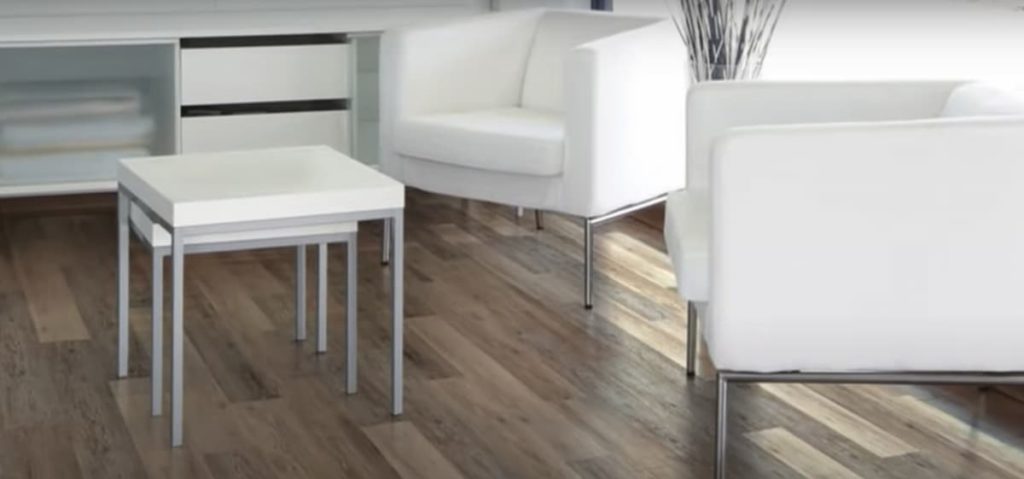
What May Work Best in Your Home?
Appearance is important to some people and vinyl lacks the natural look of wood but can mimic materials such as tile or stone making it difficult to tell from the real thing. Solid prefixed engineered hardwood planks also need more installation time than vinyl tiles which means more labour costs involved.
On the other hand, hybrid flooring has a wood-like look that can easily fool anyone but has the durability of vinyl. However, solid prefixed engineered hardwood planks require more time and labour during installation which means you pay more upfront. In this case, it’s best to come up with a list of wants and needs so you can determine which flooring type may meet these requirements for your needs. You can then narrow down options until you find something that fits your wants and budget.
Hybrid Flooring vs Vinyl Flooring
In most cases, hybrid flooring may be the better choice if you’re looking for a wood-like look with durability. While it has a slightly higher initial price tag than vinyl, the overall cost is usually lower because of its durability and easy maintenance. On the other hand, while vinyl tiles require less installation time due to having fewer pieces in general (no underlayment required), they need more labour costs to install which results in a higher final price.
Vinyl Flooring vs Hybrid Flooring
There’s a difference between hybrid flooring and solid prefixed engineered hardwood floors when comparing ease of installation and appearance. Vinyl floors are easy to install due to having smaller pieces but can’t mimic looks as easily as real wood planks do. Solid prefixed engineered hardwood floors require more time and labour during installation which means you pay more upfront. In this case, it’s best to come up with a list of wants and needs so you can determine which flooring type may meet these requirements for your needs. You can then narrow down options until you find something that fits your wants and budget.
The Final Verdict, Choosing the Right Material
Hybrid flooring is a great option if you want something that looks like wood but doesn’t require as much maintenance. Vinyl is a good choice if you have pets and/or children as it’s durable and easy to clean so they won’t destroy it quickly.
In most cases, hybrid flooring may be the better choice if you’re looking for a wood-like look with durability. While it has a slightly higher initial price tag than vinyl, the overall cost is usually lower because of its durability and easy maintenance. On the other hand, while vinyl tiles require less installation time due to having fewer pieces in general (no underlayment required), they need more labour costs to install which results in a higher final price.


